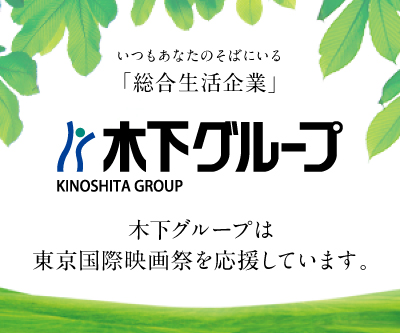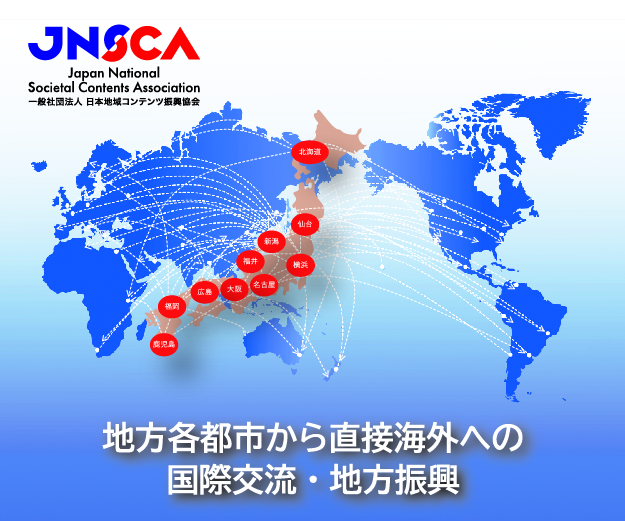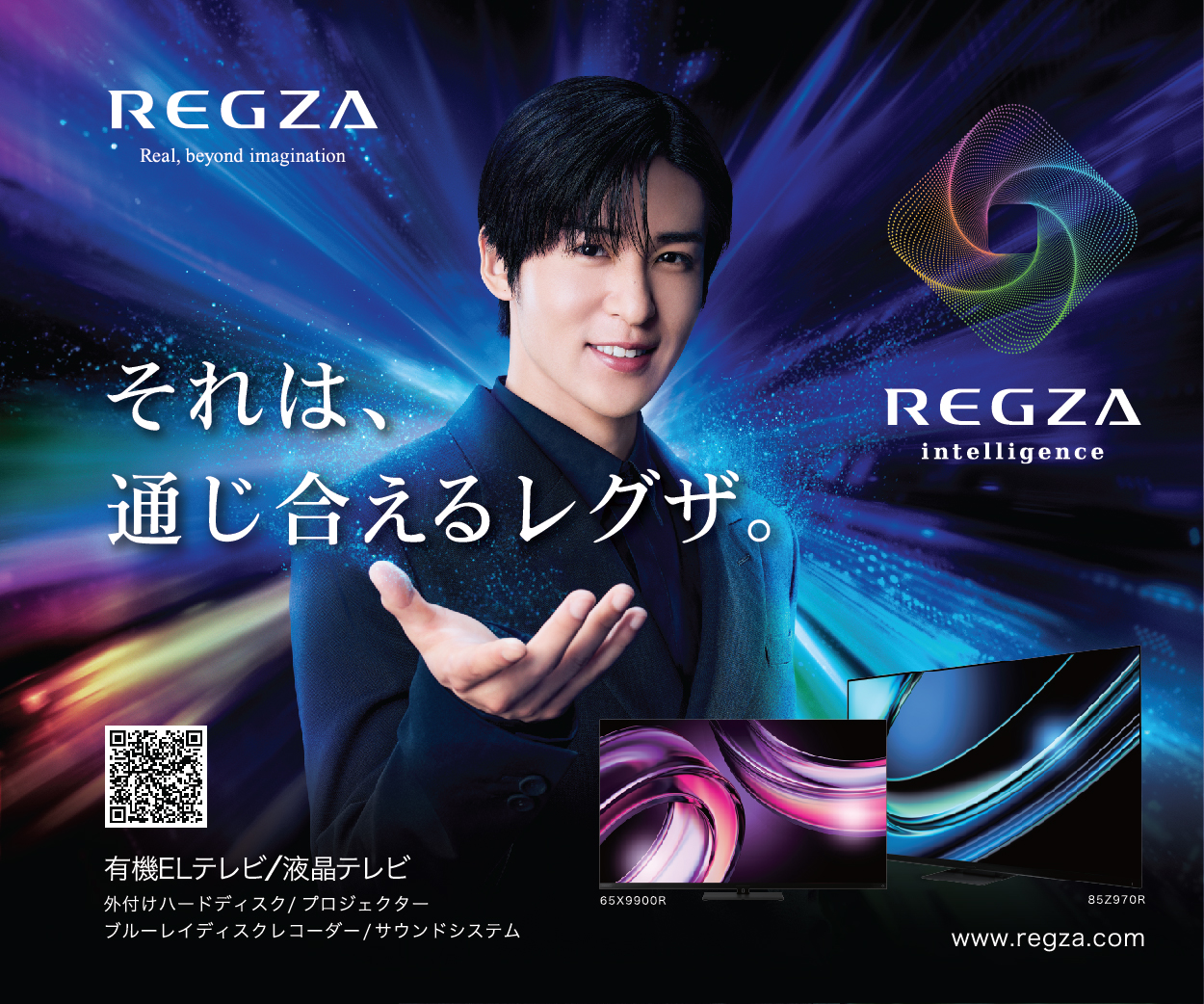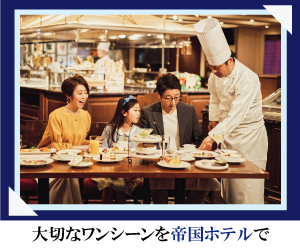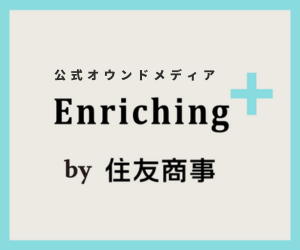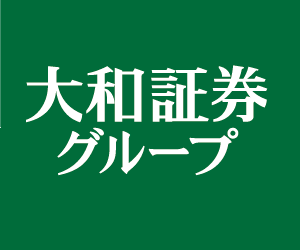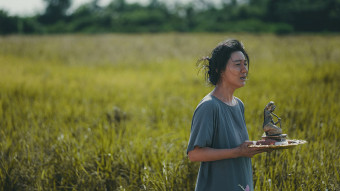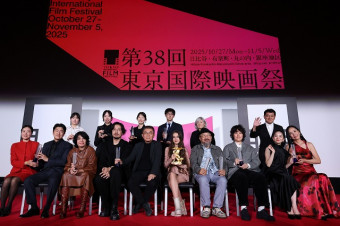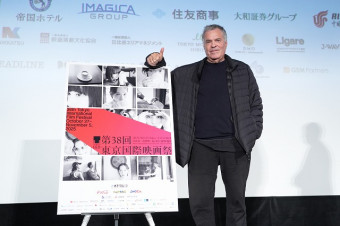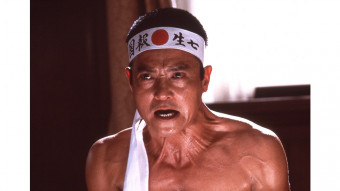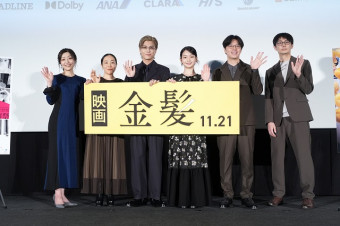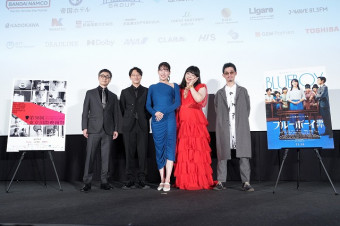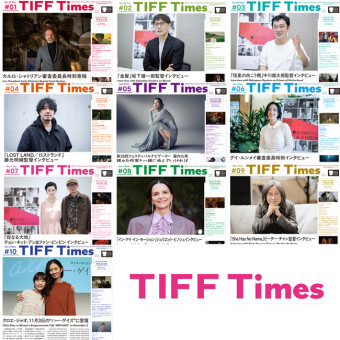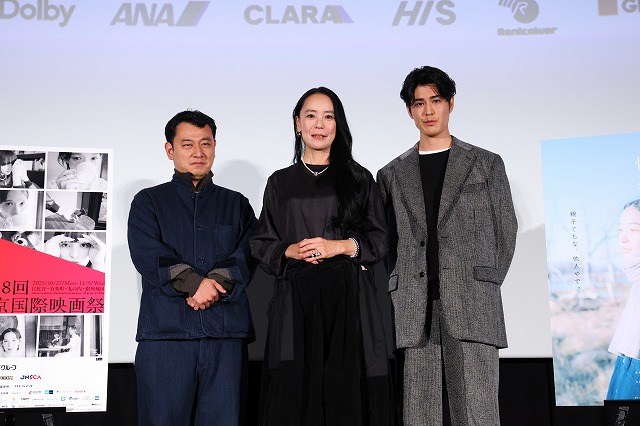
Prior to the October 29 world premiere of Echoes of Motherhood, screening in the Competition section at the 38th Tokyo International Film Festival, director Nakagawa Ryutaro and two of the film’s stars, Kanichiro and Kawase Naomi, appeared for a brief session on stage. Cinephiles will know Kawase better as the acclaimed director whose films have been selected by the Cannes Film Festival seven times, and went on screened at festivals around the world. She makes her acting debut in Nakagawa’s feature—the third of a trilogy—and thus the banter on stage was mostly about directors becoming actors and vice versa.
TIFF Programming Director Ichiyama Shozo, serving as moderator, asked Kawase how her first-time acting experience had been. “When I’m directing, I tell the actors to become their characters,” she responded. “So when Mr. Nakagawa said something, I had to do what he said, and put everything I had into it.”
Nakagawa admitted that having someone he considers his “mentor” in front of the camera caused some tension on the set. But, then again, he himself recently had acted in one of Kawase’s films, so it was only fair that the positions be reversed. “Actors need skills, but they also have to have presence on the screen,” said Nakagawa, implying that it was Kawase’s presence that made her such an asset to the film. “Still, it took some courage to ask her.”
As it happens, Kanichiro is also in the new Kawase film with Nakagawa. “I’ve known Mr. Nakagawa for a long time,” he told the audience, “so now I’ve been cast by both of the directors who are on stage here.” Kawase added wryly that all they needed to happen was for Kanichiro himself to direct a movie and hire both her and Nakagawa to act, “and then the circle will be complete.”
Kanichiro laughed. “No, that would be too complicated.”
But in a way, it’s already happened. In Echoes of Motherhood Kanichiro is a theater director, Toshizo, who is staging a play based on a story related to his mother-in-law, Kanako (Kawase). When his wife Michi (Fukuchi Momoko) learns that her mother’s cancer has returned, she travels to her hometown in Nara to take care of her despite their fraught relationship. Kanako has decided to forgo treatment, and Michi’s presence seems to irk her, dredging up bitter feelings that have always existed between the two. At first Michi’s frustrations get the better of her, but slowly she comes to learn something about her mother’s own past that she was unaware of, and begins the painful process of empathizing with someone who has accepted death.
During the post-screening Q&A, with Nakagawa and Kawase returning to the stage, one audience member mentioned the first two films in the director’s trilogy on the theme of ‘loss and revival’: Tokyo Sunrise (2015) and Summer Blossoms (2017). Given that Nakagawa, born in 1990, is still a young director, the viewer wanted to know what he could possibly do after addressing such heavy topics. Nakagawa admitted that he doesn’t really know what the future holds in terms of new material, but said he hopes that “all the things I hold dear can be made into a film.”
Per the English title, motherhood is the through-line of the film, since Michi herself is pregnant with her first child as she takes care of Kanako. One viewer expressed awe at how well Nakagawa was able to convey the intensity of a troubled mother-daughter relationship. “I don’t want to say I understand women,” Nakagawa demurred. “But I’ve experienced loss myself and tried to use that experience to take a different approach with this film. I put all my feelings into Kawase’s character and the young couple.”
Kawase added, “I don’t think women’s feelings can be truly understood by men, but Mr. Nakagawa is different.”
Naturally, someone wanted to know if there was any overlap between Kanako’s personality, which can be quite caustic, and Kawase’s. “Well, she’s a woman and a mother, which I am too in real life,” said Kawase, “but I don’t treat my children the same way. Kanako doesn’t know how to be herself. She wasn’t protected when she was growing up and doesn’t know what to do when her daughter needs her. For that reason, I was cold to Fukuchi Momoko on set, because I didn’t want to lose that part of Kanako.”
She added that she has already acted in two more yet-to-be-released films, one by the Spanish director Lluís Miñarro and another by a Dutch director whose name she didn’t reveal. “And I die in both,” she said, as if it had become her acting métier.
When asked about the specific inspiration for Echoes, Nakagawa quickly answered, “I always start with who and where, so in this case it was Ms. Kawase in Nara [Kawase’s base of operations] and the actor Nakao Sachiyo in Hokkaido.” Nakao plays Kanako’s former teacher, with whom she has maintained a cassette-tape correspondence for more than 30 years. This revelation led to a discussion by Nakagawa and Kawase of Nakao’s career. She was apparently the muse of the late Sasaki Shoichiro, one of Nakagawa’s favorite filmmakers. “It was an honor to have her in my film,” said the director, with considerable emotion.
“Do you have muse?” asked Kawase.
“I think I stole Mr. Sasaki’s,” replied Nakagawa.
Kawase’s own muse would appear to be the late actor Kiki Kirin, who appeared in Kawase’s Sweet Bean as a memorable survivor of Hansen’s disease.
When asked about Kanako’s Christian belief, Nakagawa said that he himself is Catholic and that the Japanese title refers to light filtering down from heaven. Kawase added that she suggested one scene to Nakagawa in which Kanako is blowing on a dandelion because of the kind of light it provided. “I learned that from Kiki Kirin,” she said. “She always was drawn to a certain kind of light, so that scene in the film is my Kiki Kirin moment.”
Greetings from the Stage and Q&A Session: Competition
Echoes of Motherhood
Guests: Nakagawa Ryutaro (Director), Kawase Naomi (Actor), Kanichiro (Actor)











